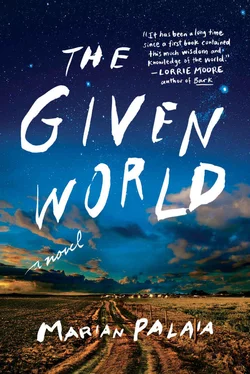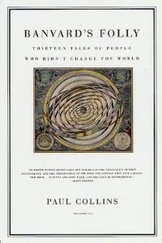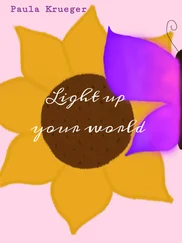“I must look totally insane,” I say, sort of to myself.
“Maybe a little,” the girl says.
I laugh again, feeling less dreadful, and ready to abandon my own spirit-infested memory awhile.
“Where did you come from?” I ask. “And how old are you?”
“I’m seventeen. And I come from Bum Fuck, Oregon.”
“Sounds like a fun place. I come from one of those too. I’m Riley.”
“Grace.” The girl holds out her hand, and I shake it.
“Grace for graceful?”
“Not hardly. Dis grace is more like it.” She yawns, says, “Sorry, I’m really tired.” She leans her head back, tries to keep her eyes open, and fails. Within moments, any remaining tension in her disappears, leaving her face the picture of angel innocence, as some sleeping faces tend to be. Her mouth is open slightly, and her hands twitch — not like a player’s this time so much as the sweet-smelling paws of young dogs, already chasing rabbits in their dreams.
It gets light somewhere around Libby, and the faintly sun-spackled but mostly murky green wildness of it makes me want to set off, hike north, and build myself a little cabin in a deep-woods clearing up by Canada somewhere. Get a dog. Plant a garden. But that would not be going home — that would unmistakably be staying gone.
My hands have finally settled down, but now my legs are starting to ache, so I get up and squeeze past Grace, accidentally kicking her box into the aisle. I stay for a minute, bending over to stretch, and there it is, right there, begging to be investigated. I fight the temptation to pick it up, and lose.
It’s not light, not heavy, copper colored, slightly dented, and hand-etched with an array of wild creatures: moose, coyote, bear, rabbit. I straighten up to examine it further in the dim light. Not to actually open it. Because that would be snooping. But the lid comes off so easily, with barely a tug.
Those are not cigarette ashes. I can make out specks of bone, something that might have been a tooth. I sneak a look at Grace, but she is still sleeping. I reach in, scoop out a small handful, rub a bit between my fingers before separating them to let the grainy gray dust filter through. One shard, maybe a half inch long, stays in my hand. The fire apparently didn’t burn long or hot enough to take the sharp bits off, though I don’t know how that could be. I press it lengthwise between my thumb and forefinger until I feel it poke through skin with a slight pop. I put the box back, close the lid, crouch to slip it under Grace’s seat. I keep the one little fragment, though, tucking it into the small hip pocket of my jeans.
Behind my breastbone, in place of my heart, I feel a fish flopping madly, trying to dash its own brains out on the beach before it suffocates. I make myself take a deep breath and set off to find the dining car, but it is still dark, and the sign says there will be no dining until seven. I know there is a snack bar too, somewhere, but do not need caffeine desperately enough to go searching for it. I head back toward our car but stop between two others before I reach it. The metal floor pitches and shifts beneath my feet, keeping me a bit off balance as I stand at the small window. It takes me a minute to realize it has a latch, which I test, wondering if I am doing something that could get me in trouble, knowing I am too old to be thinking like that but still feeling, especially now, pretty much seventeen all over again. Or still. Like that sleeping girl.
Being in trouble at seventeen, for me, had among other things meant becoming another statistic for the state to file under “stupid teenager tricks.” Early pregnancies were big in Montana, as were suicides, drunk-driving fatalities, hunting accidents, and domestic violence. I don’t think any of it, save the pregnancy, would have applied to me and Darrell, though; don’t believe that if he had stayed either of us would have been so inclined. At least from what I remember, all those bright images still occupying their own crowded and dust-covered corner of my mind.
It makes me crazy, even — or maybe especially — after so many years, that Darrell was kidnapped, as far as I am concerned, by the same folks who spirited my brother off, and sent to do something about the Viet Cong, who were similarly dark but not nearly as tall. Surely he knew he was going to hate it, maybe have to kill someone, maybe have to die. But some people had a way of surviving these things. People who didn’t not survive them. I have always thought I knew, could feel in my bones, that Darrell survived. If this is true, I would like very much to be able to ask him how.
I open the window, and the smell of the outdoors nearly knocks me over. I did not by any means spend all of my California years stuck in the city; I searched out forests, spent time and hiked and camped in them, climbed their trees, lived a few stretches at Golden Gate Park and Muir Woods. But this is different: it is what a Montana forest smells like, this particular arrangement of growing things. Mick tried like hell to teach me how to identify the different trees, how to see the woods, how to tell all the different elements apart. Some trees were easier to pick out than others, but the pines were especially hard, since there were so many different kinds, and I still didn’t have them down by the time he went away.
I am still trying, or trying again, when the train enters a tunnel and the trees disappear. It stays dark, and not at home in tunnels of any length, I lose my sense of direction, don’t know for a minute which door to go through to get back to my seat. I feel my pulse speeding up and have to keep wiping the sweat from my hands onto my jeans as I make myself start moving toward any hint of light. When I find the right car, and Grace, I see that she has folded her skinny body into thirds like a lawn chair, and is now wedged between the two armrests, arms around her knees and head tucked into her shoulder as if it were a wing. I am amazed anyone can sleep so long sitting up, let alone execute the contortionist act. I reach out and set my damp hand lightly on her head, feel her thick, tangled hair. She murmurs something I can’t catch, but she doesn’t wake up. The box is right where I left it.
We get to Whitefish around seven, a little early. It is a long stop, so we have time to get off the train to find and drink a cup of coffee in the fresh air and sunlight. I leave everything behind, but Grace brings along her box, tucking it under her arm while she puts about half a cup of sugar and two inches of cream into her coffee.
“Wow,” I say. “What do you call that concoction?”
“Coffee. Why?”
“Do you always drink it like that?”
“Yeah. It’s free nutrients. Calcium and protein. Whatever sugar is. Carbs, I guess. Calories. It’s sort of like a meal in a go-cup.”
“You want something real to eat?” I ask.
“Nah. This is good.”
“No it isn’t. Come on.”
She doesn’t argue; she follows me into a café near the station, where I buy bagels and pastries and fruit. We traipse across the soggy grass to sit on top of a picnic table, where Grace wolfs down a plate-size bear claw and a bagel, and I drink coffee and nibble chunks of cantaloupe and an entire bunch of grapes.
The next table over has a neatly axed beer can pinned to it by the hatchet (abandoned) that obviously committed the crime. I wonder what the motivation was, but it isn’t a far stretch to come up with a variety of possible scenarios. I know there have been times, and probably will be again, that axing an innocent beer can will seem like the very thing.
A huge, jacked-up pickup in the parking lot has a bumper sticker that says, “Keep Montana wild. Gutshoot subdividers and wolves.” Another one on the same truck: “Honk if you’ve bitchslapped an environmentalist today.”
Читать дальше












